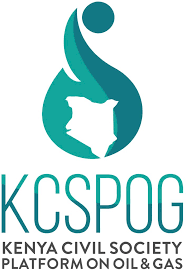While Waste Water Regulations are promising, a lot must be done to streamline Successful Implementation
By Samantha Luseno, Resource Mobilization and Partnerships Engagement Officer at The Kenya Civil Society Platform on Oil and Gas
Tullow and its Joint Venture Partners received approval for the 2021 annual work plan and budget for the implementation of the South Lokichar-Turkana Project. As they seek to restart operations the conversation on Waste Management, broadly must be revived considering initial challenges with waste disposal that drew attention of key sector players including National Environmental Management Authority (NEMA) and local civil society organizations such as Friends of Lake Turkana at their Ngamia Site.
Waste Water Management is especially important as the Oil and Gas Sector like other extractives industries have the potential of compounding water scarcity. The adoption of sustainable water practice and processes as we approach a final investment decision and full field development by Tullow and its Joint Venture Partners will be beneficial in two ways: they will be economically advantageous considering current estimates of the amount of water to be used for production; and they will minimise environmental impact.
The South Lokichar Basin has a total of 40 exploration and appraisal wells, the next stage involves developing 321 wells consisting of producer and injector wells in Ngamia, Amosing, and Twiga. Waste Water seepages are of particular concern as they could result in the contamination of both underground and surface water ways. Oil and Gas exploration, like other extractives industries is also extremely water intensive. The Waste Management Guidelines put forward by NEMA are extremely timely and waste water management requirements and puts forward pollution prevention alternatives.
Produced water is water produced as a by-product during oil and gas extraction and may include well formation water, injection water and any chemicals added during drilling, production or maintenance. It is the largest waste water source and is therefore of significant concern. The regulations require that feasible alternatives for the management and disposal of produced water should be evaluated and integrated into the production designs. The regulations seek to reduce the amount of water utilized in upstream oil and gas exploration and production, and ensure correct disposal of effluents.
At the point of water use, the regulations recommend the following actions: optimizing the rate of production to minimize quantity of water used; using produced waters at different stages of the process to test pipelines, equipment, and tanks; and drilling horizontal (dug at an angle of at least 80 degrees) wells.
With regard to the disposal of produced water, industry sources indicate that the main disposal alternatives for the South Lokichar, Turkana Project and other upstream developments onshore: injection into the reservoir to enhance oil recovery; and injection into a dedicated disposal well drilled to a suitable receiving subsurface geological formation. These differ slightly in the case of off-shore oil and gas exploration. He further highlighted that Tullow Oil was in the process of integrating water treatment technologies into their operations. Due to its chemical composition, this water will often not be suitable for use in other sector. Use by other sectors, may be appropriate to consider if the chemical nature of the produced water is compatible with these options.
While the development of these guidelines is a proactive step by NEMA a few gaps may hinder their successful implementation. Tullow is currently reassessing Project Oil Kenya with a phased development concept. To enhance feasibility at the current prices, the firm has spent on decommissioning with organizational restructuring which is expected to deliver sustainable annual cash savings of Kshs 13.8 Billion annually. Among the actions taken is significant reductions in staffing, including those involved with environmental coordination locally. While this may be financially sound, one must think of the potential impact on the firm’s environmental management practises moving forward.
The Waste Management Guidelines should inform the review of existing legislative frameworks. Current Kenyan provisions have no provisions on underground disposal of waste. In addition, Water Quality Regulations do not provide sufficient requirements and methods for disposal of liquid waste from the oil and gas sector. The regulations mainly discuss discharges into sewers. This may not adequately work for the petroleum sector considering the characteristics and chemical composition of liquid waste. Though Tullow seeks to integrate sustainable technologies to streamline use of water and management of waste water, the current legal framework does not foster nor require the use of such technologies. Legislation must adapt to the needs of the sector to better serve its requirements.
